|
Here at
BoaMorph we have adopted a pragmatic approach to the nomenclature and selling of albino and het albino boas that are also
coral or possible coral. Our usage of these terms is described in detail below.
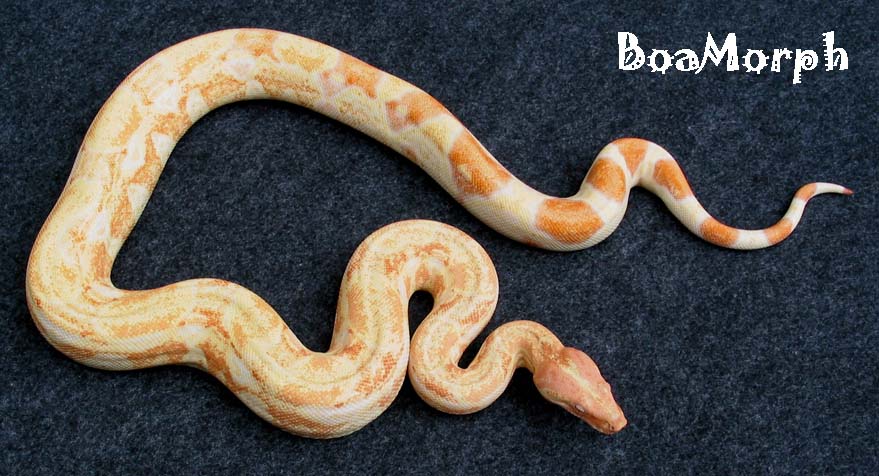
|
| Little Daddy, one of our 2003 Groovy-Line Coral Albinos |
Coral Albino – The designation of coral albino is given only to boas that are unquestionably coral albinos, and
to adult boas that were possible coral albinos and have since been proven to be coral albinos through breeding trials.
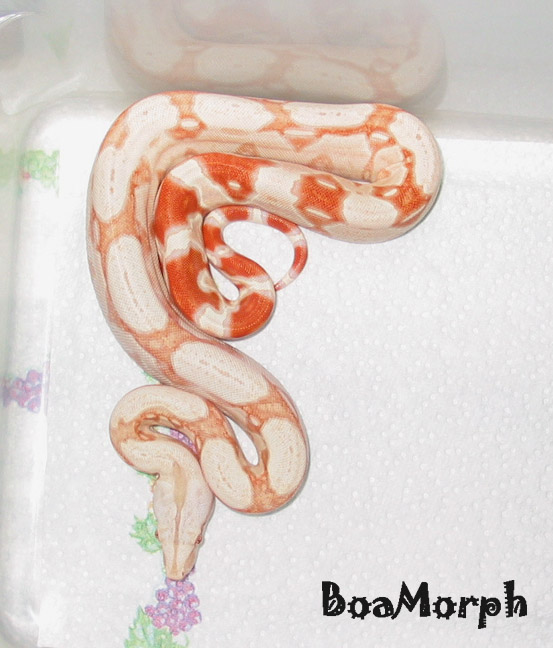
|
| One of our 2006 females at 2 weeks old. |
Possible Coral Albino
– If there is
any question as to whether or not an albino boa is also coral, that boa is designated a possible coral albino. In many cases, this will be a juvenile boa that has not yet revealed whether or to what degree it will
“coral up.” Note that unlike albinism where a percentage is commonly
provided indicating the probability of a possible het albino actually being a het albino (e.g. “50% het albino”)
based on the proven Mendelian genetic characteristics of that trait, it would be inappropriate to assign a percentage to the
possibility of one of these boas being a coral because the genetics behind the coral trait are not yet understood.
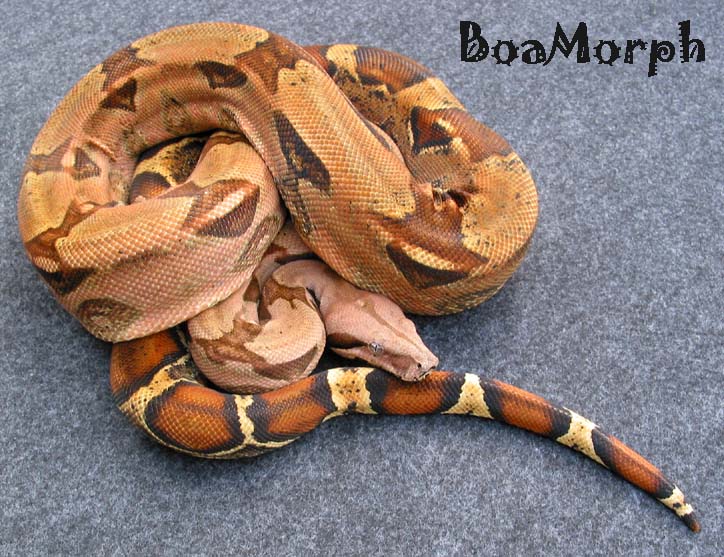
|
| A Coral Het Albino from one of our 2004 litters |
Coral
Het Albino –
Because the expression of the coral trait can be even more difficult to discern in het albinos than in albinos, very few boas
receive the designation coral het albino. For the boa pictured at right, we have
no reservations about calling him a coral het albino. However, it is only in
these most extreme examples that we feel comfortable guaranteeing that a het albino
is also a coral. The term “het coral albino” that many have used
implies that heterozygous somehow applies to the coral trait as well as to the albino trait, and this is not known to be true. We prefer the coral het albino nomenclature over het coral albino because we feel
that it more accurately represents what we know about the animal: it is coral
and het albino. Also note that when advertising these boas we will often call
them coral 100% het albinos. Although this terminology is redundant (het albino
is het albino), it has become commonplace to include the 100% designation to further clarify that the boa is a known het albino
and not just a possible het albino.
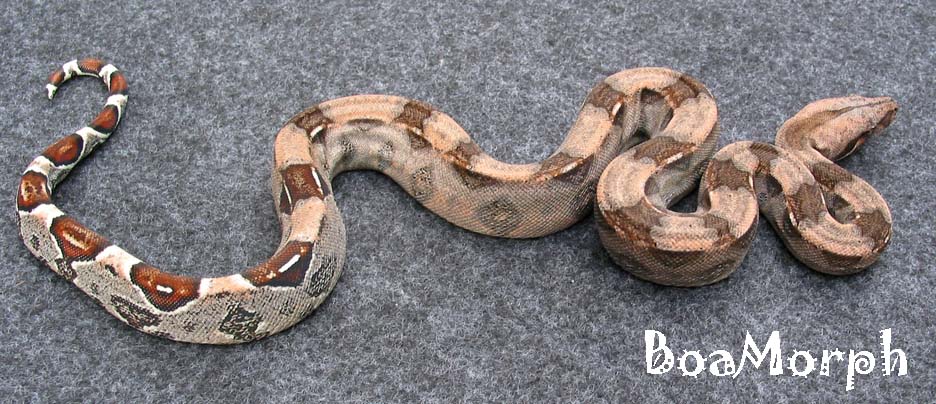
|
| Though this 10-month old 2006 Het Albino looks promising, we would designate him a Possible Coral. |
Het
Albino Possible Coral – Most of the het albinos from our coral bloodlines receive this designation because, except for the most
extreme examples, there is not a sufficient visual or genetic basis to justify calling them coral het albinos. Similar to the coral het albinos, when advertising one of these boas we will often call it a 100% het albino
possible coral to clarify that it is a known het albino and not just a possible het albino.
It would be inappropriate to assign a percentage to the possibility of the boa being coral because the genetics behind
the coral trait are not yet understood.
In ALL cases, at least one parent must be either a coral albino or a coral het albino. Note that it is not necessarily important to know which one. For example, if a cross between a possible coral albino and a het albino possible coral produces a litter
that includes at least one coral albino, then the rest of the offspring are at least possible coral albinos and het albino
possible corals; it is not important to know which of the parents contributed the coral trait in determining the appropriate
nomenclature for their offspring. Because expression of the coral trait can be
delayed for as long as 18 months or more, it is not unusual for possible corals to be upgraded to corals as they mature.
Our pricing of albino and het albino boas from our coral bloodlines is based primarily on appearance, with
the most extreme high-expression corals commanding the highest prices. Most of
the het albino boas from our coral bloodlines are sold as het albino possible corals.
These and our possible coral albinos are priced based on appearance and on our subjective judgment as to the likelihood
of a given boa possessing the coral trait.
We always specify the genetics of the parents in our advertisements and on our website. We also make photos of the parents and littermates available, sometimes in our advertisements and always
on our website or online photo albums. We feel that this information allows our
customers to evaluate for themselves the appearance of a given boa relative to others, and the likelihood of a particular
boa possessing the coral trait. We want each of our customers to feel confident
that the price paid is an excellent value for the quality and potential of each boa purchased.
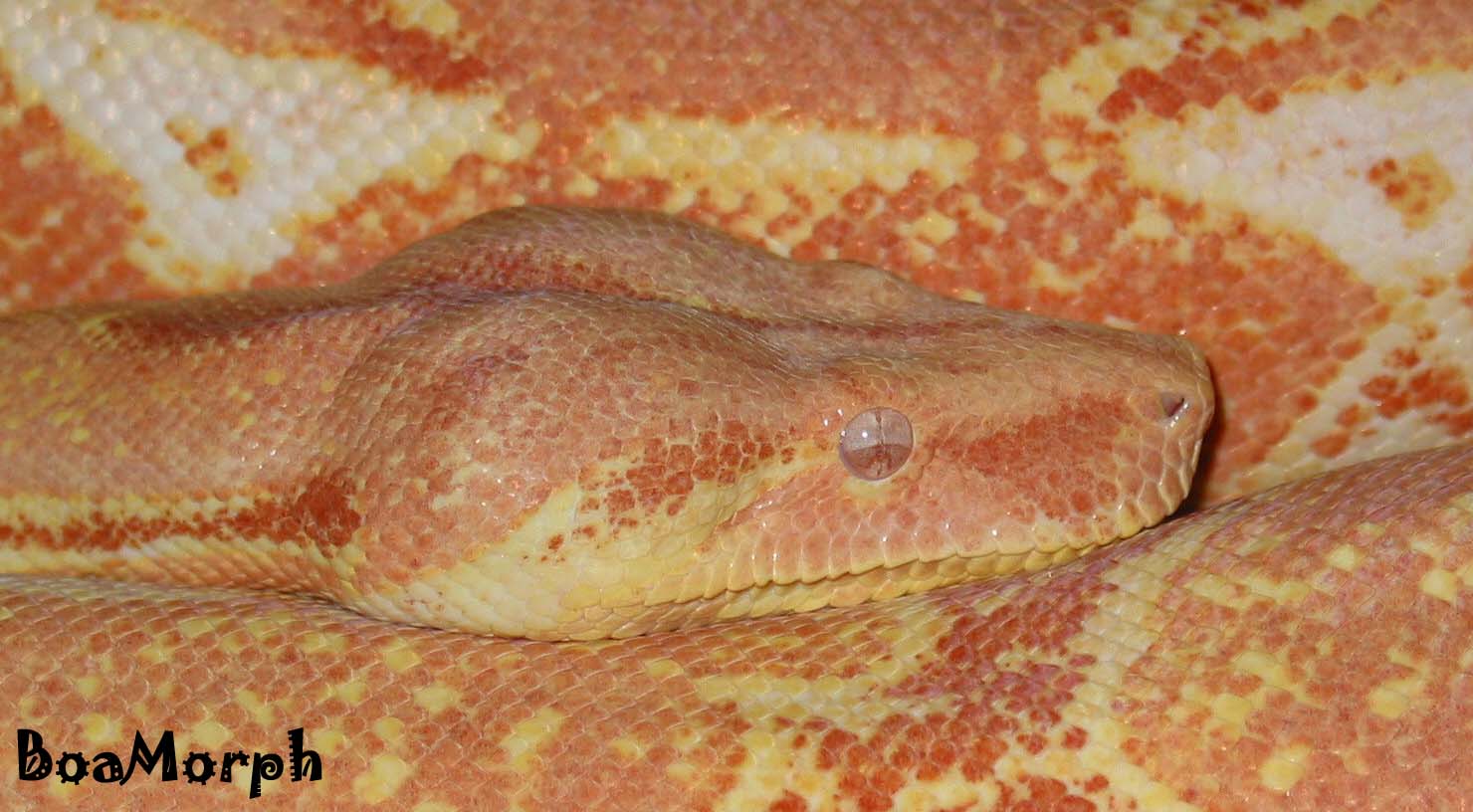
|
| Groovy Girl |
|

